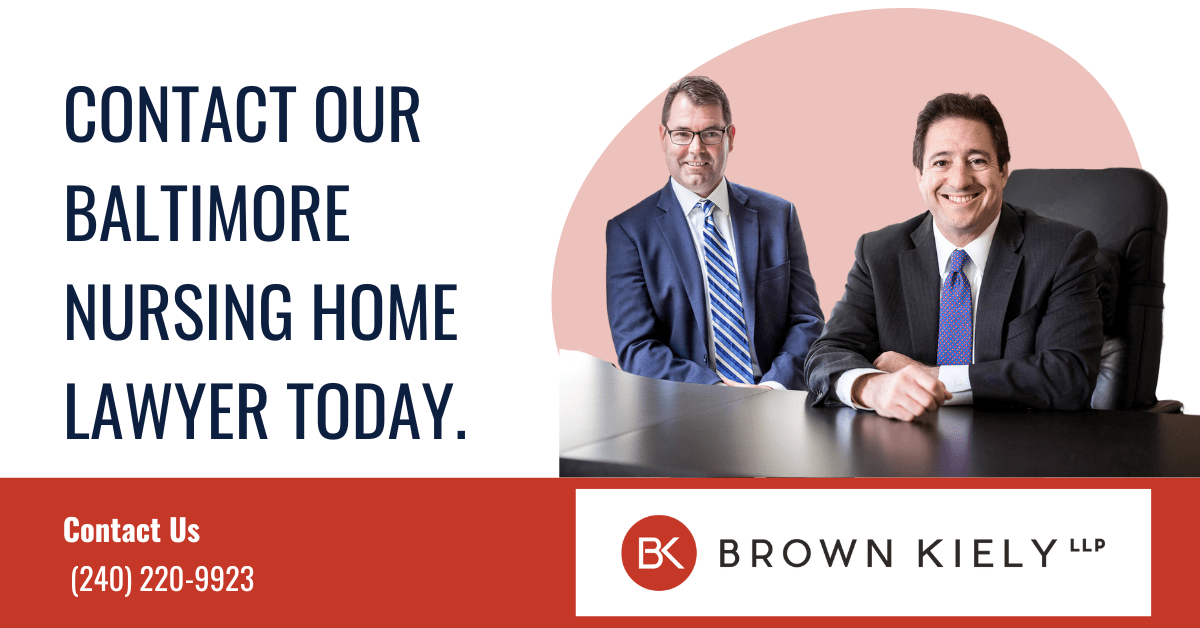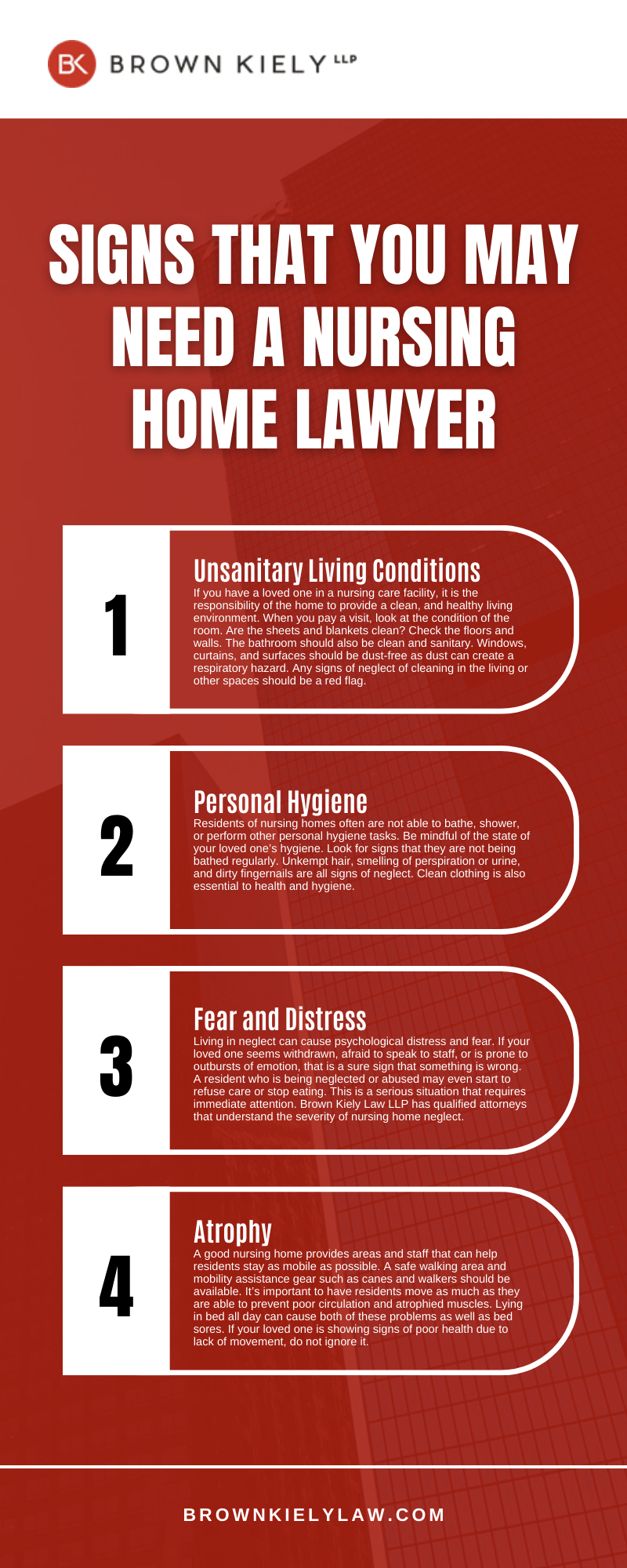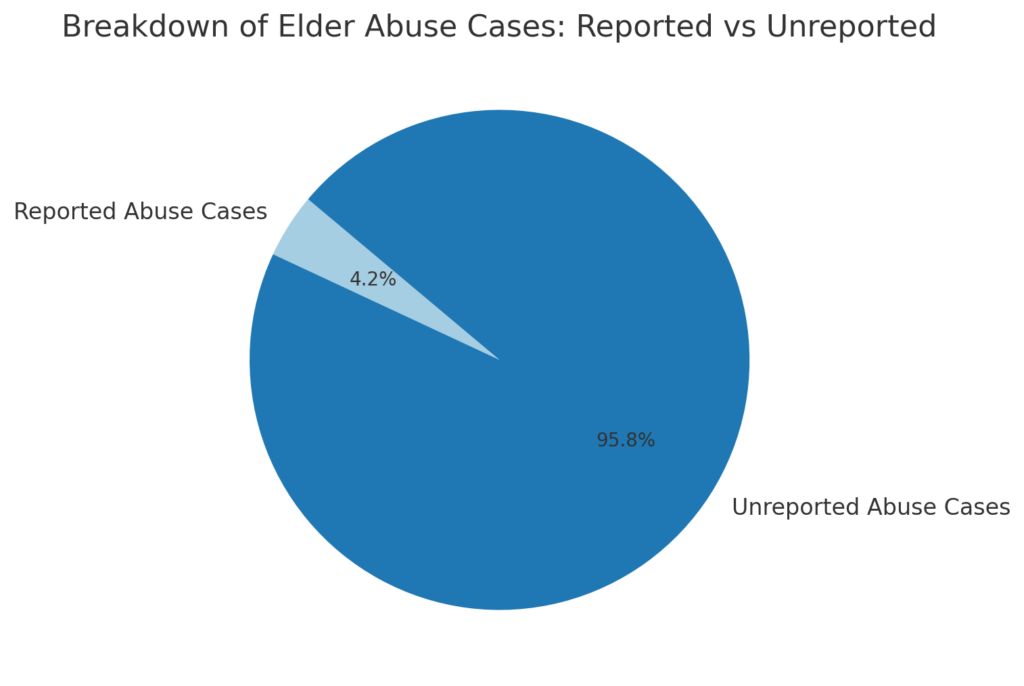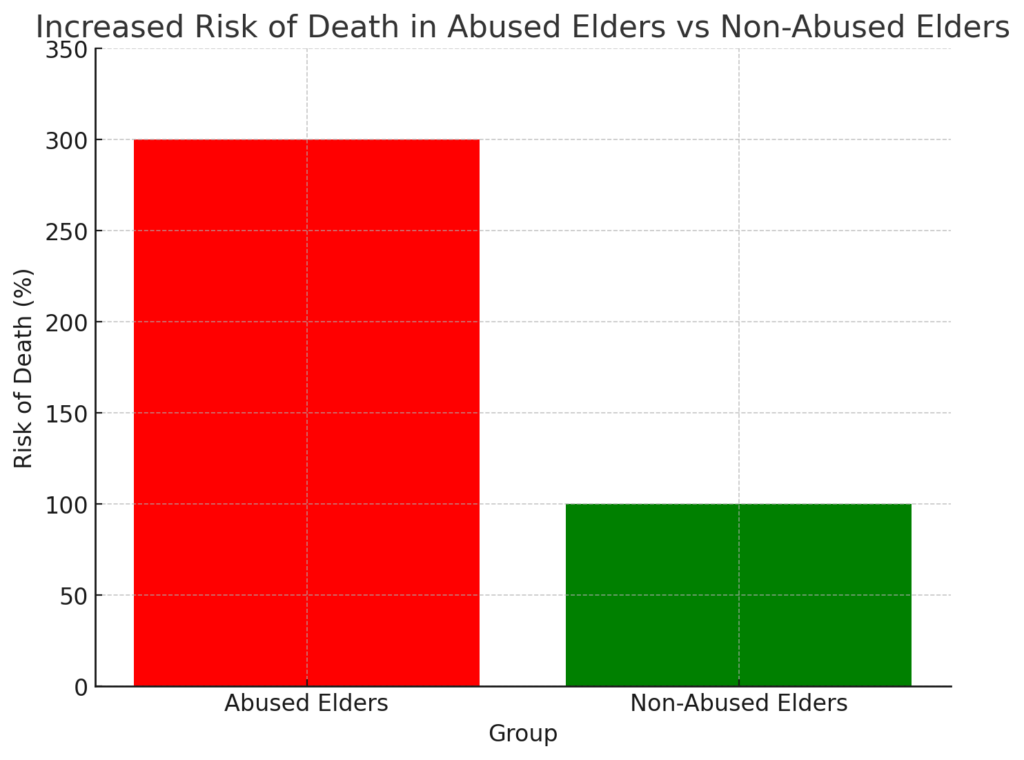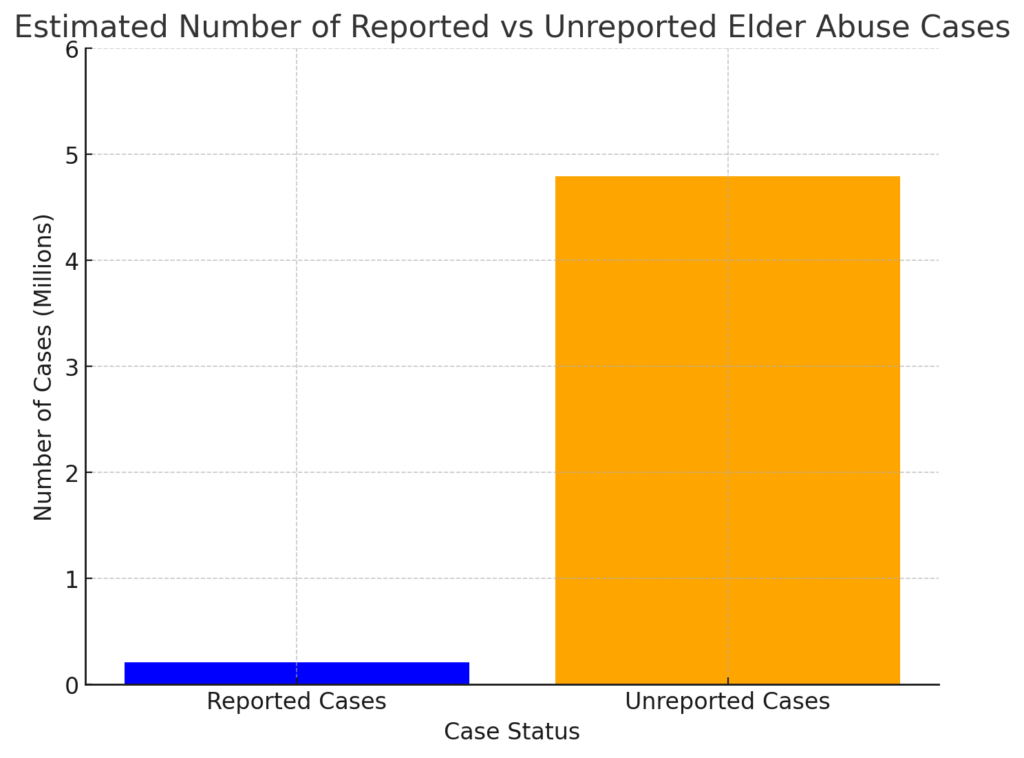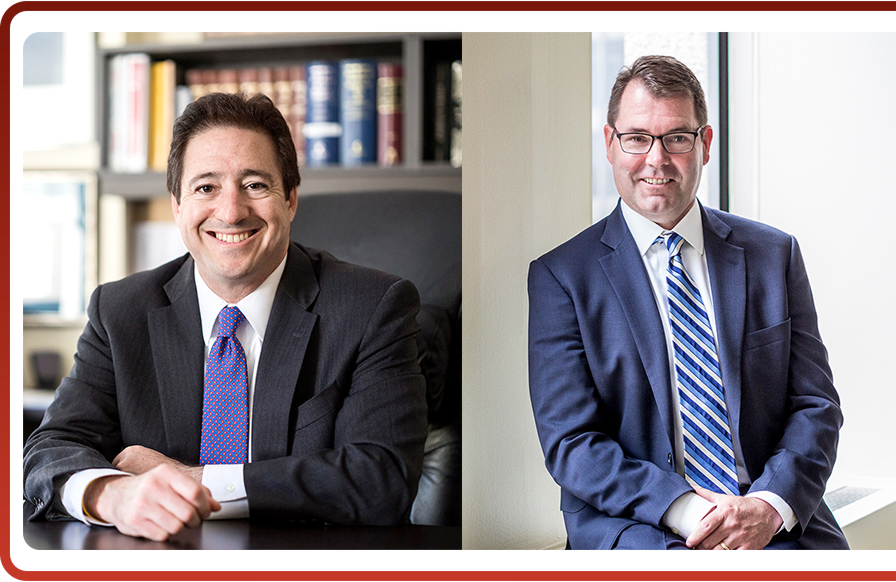
Baltimore, MD Nursing Home Lawyer

Taking Legal Action After Nursing Home Abuse
Family members who are concerned about their aging relative in a nursing home facility can rely on our Baltimore, MD nursing home abuse lawyer for advice on how to take action. Nursing home mistreatment is a serious issue for our legal team at Brown Kiely, LLP, with neglect being a top form of abuse against the elderly. Nursing home neglect occurs when staff fails to provide a proper level of care to their residents. At Brown Kiely, LLP, we are committed to providing the necessary legal support to uncover the truth and seek justice for victims of abuse. With the right approach and resources, we can help bring light to these often-hidden transgressions
Filing a claim against a nursing home can be a critical step in addressing negligence or abuse suffered by a loved one. In our decades of experience, we have seen that many people do not know that their situation warrants legal action in the first place. This is why we strive to make the general public more aware of their rights and options, so that people who are reckless can be held accountable more often. Reach out to us to learn more about the reasons why it’s essential to file a claim against a nursing home and how our skilled personal injury attorneys can help you pursue justice.
Table of Contents
The Duty Of Care In Nursing Homes
Nursing homes have a legal and moral obligation to provide a clean and safe environment for their residents. This duty includes:
- Regular Cleaning: Ensuring that living spaces, communal areas, and personal areas are regularly and thoroughly cleaned.
- Personal Hygiene Care: Assisting residents with daily personal hygiene tasks, especially those who are unable to care for themselves.
- Health Monitoring: Regularly monitoring residents for any signs of health issues that might arise from poor living conditions.
Protecting Loved Ones
The primary reason to file a claim against a nursing home is to protect our loved ones. When we entrust a nursing home with the care of a family member, we expect them to provide a safe, nurturing environment. If this trust is breached through neglect or abuse, it’s our duty to take action. Filing a claim not only seeks justice for the victim but also ensures that similar incidents do not occur to others in the future.
Accountability And Prevention
Nursing homes must be held accountable for their actions or inactions that lead to harm. By filing a claim, we send a clear message that negligence and abuse are unacceptable. This accountability can lead to systemic changes within the facility, promoting a safer environment for all residents.
Recognizing Signs Of Abuse
Abuse can manifest in various forms – physical, emotional, sexual, financial, or neglect. Recognizing these signs is the first critical step. Physical abuse may be indicated by unexplained injuries, while emotional abuse might be harder to discern but can be evident through changes in behavior. Financial exploitation and neglect also leave trails that need careful observation.
Changes in the behavior of a loved one can often be a telling sign of abuse. Withdrawal, anxiety, fearfulness, or uncharacteristic aggression can all indicate that something is amiss. It’s essential to note these changes as they form an integral part of the evidence.
Dirty living conditions and lack of personal hygiene in nursing homes are critical issues that not only affect the quality of life of residents but also raise significant health concerns. Our Baltimore nursing home abuse attorney is deeply committed to addressing these issues, understanding the profound impact they have on the elderly and vulnerable populations in care facilities.
Impacts Of Dirty Living Conditions In Nursing Homes
- Health Risks: Unsanitary conditions can lead to a host of health problems, including infections, skin conditions, and exacerbated chronic illnesses. For elderly residents with compromised immune systems, these risks are even higher.
- Emotional And Psychological Effects: Living in a dirty environment can significantly impact residents’ mental health, leading to feelings of neglect, depression, and decreased self-worth.
- Social Consequences: When personal hygiene is neglected, it can lead to social isolation as residents may feel embarrassed or unworthy of interacting with others.
Seeking Financial Compensation
Filing a claim can lead to financial compensation for the victim and their family. This compensation can cover medical expenses, pain and suffering, and other related costs. While no amount of money can undo the harm suffered, financial compensation can provide some relief and support for the future.
Beyond financial compensation, filing a claim seeks to achieve justice for the victim. It’s about acknowledging the wrongs done and making sure that the responsible parties are held accountable. This sense of justice can be crucial for the emotional and psychological healing of the victim and their family.
Important Evidence In Nursing Home Abuse Cases
Documenting the specific injuries or signs of neglect is crucial. Photographic evidence, medical reports, and expert testimonies play a significant role in substantiating the claim. This documentation not only aids in legal proceedings but also provides a clear record of the extent of harm suffered by the resident.
- Medical Records And Reports
Medical records are paramount when it comes to proving physical abuse or neglect. These documents can directly correlate injuries or deteriorating health conditions to potential abuse. It’s crucial to obtain a complete record of all medical treatments and evaluations.
- Photographic Evidence
Photographs can serve as powerful evidence. They provide a visual record of physical injuries, poor living conditions, or any other visible signs of abuse or neglect. These should be dated and detailed for clarity and validity.
- Witness Statements And Expert Testimonies
Witnesses can provide valuable insights and accounts of observed abuse. This includes testimonies from other residents, staff members, or visitors. Our Baltimore nursing home neglect lawyer at Brown Kiely, LLP prioritizes gathering detailed and reliable witness statements to strengthen the case.
Expert testimonies, especially from medical professionals or caregivers, can lend significant weight to a case. They can provide an authoritative analysis of injuries and health conditions, linking them to potential abuse.
- Utilizing Technology And Surveillance
In some cases, surveillance footage from the facility can be crucial in providing direct evidence of abuse or neglect. While obtaining such footage get complicated, it can be a game-changer in proving the case.
- Digital Records And Communications
In today’s digital age, emails, text messages, and financial records can also serve as evidence, especially in cases of financial exploitation or emotional abuse. It’s important to secure these digital trails as they can be easily altered or deleted.
Baltimore Nursing Home Abuse Infographic
Nursing Home Abuse Statistics
According to the National Council on Aging (NCOA), as many as 5 million older Americans experience abuse every year, many of them residing in nursing facilities. One study estimated that only one in 24 cases of abuse are reported to authorities. Elders who have been abused have a 300% higher risk of death when compared to those who have not been mistreated. Contact a nursing home lawyer to find out what signs you should be looking for if you suspect your elderly loved one is a victim.
Nursing Home Abuse FAQs
What Are The Most Common Types Of Nursing Home Lawsuits?
Nursing home lawsuits typically arise from allegations of abuse, neglect, or violations of residents’ rights. Common types of lawsuits include those for physical abuse, where residents suffer from injuries due to intentional harm or rough handling; neglect, where residents suffer from bedsores, malnutrition, or dehydration due to inadequate care; medical malpractice, involving substandard medical treatment; and emotional or psychological abuse, including verbal harassment or isolation. Each case hinges on demonstrating that the nursing home failed in its duty of care, resulting in harm to the resident.
How Do I Know If I Have A Valid Nursing Home Abuse Or Neglect Claim?
A valid nursing home abuse or neglect claim typically involves evidence of harm or injury to a resident directly caused by the facility’s action or inaction. Key indicators include physical signs of abuse (like bruises or fractures), evidence of poor living conditions, or a decline in the resident’s physical or mental health without a medical explanation. Consulting with a lawyer experienced in nursing home law is crucial to assess the validity of a claim, as they can help evaluate the evidence and determine if the nursing home’s conduct breached the standard of care owed to the resident.
What Rights Do Nursing Home Residents Have?
Nursing home residents have rights protected by federal and state laws. These include the right to be treated with dignity and respect, the right to privacy, the right to be free from abuse and neglect, the right to make personal choices about care and daily life, the right to participate in social, religious, and community activities, and the right to voice grievances without fear of retaliation. Additionally, they have the right to be fully informed about their medical condition and to participate in their own healthcare decisions.
Can A Family Member Sue A Nursing Home For Wrongful Death?
Yes, families can sue a nursing home for wrongful death if it can be proven that the death of a resident was due to the nursing home’s negligence or intentional harm. In these cases, the lawsuit aims to demonstrate that the facility failed to provide the necessary standard of care, directly leading to the resident’s death. Compensation in such cases may cover medical expenses incurred before death, funeral and burial costs, and other damages like the loss of companionship for the family members.
How Long Do I Have To File A Nursing Home Abuse Lawsuit?
The time frame to file a nursing home abuse lawsuit, known as the statute of limitations, varies by state. Generally, it ranges from one to three years from the date the abuse was discovered or should have been discovered. It’s important to act promptly in suspected cases of nursing home abuse, as waiting too long can render you unable to file a lawsuit. Consulting with an attorney as soon as possible after suspecting abuse is essential to ensure that your legal rights are preserved.
Baltimore Nursing Home Abuse Glossary
At Brown Kiely LLP, our Maryland nursing home lawyer works to protect the rights of elderly residents in care facilities who have suffered abuse or neglect. With decades of experience and a commitment to authentic relationships, we are dedicated to advocating for victims and their families. Below are key legal terms and concepts frequently encountered in nursing home cases.
Nursing Home Neglect
Nursing home neglect occurs when staff fail to provide the level of care required to maintain the health and well-being of residents. This includes failing to address basic needs such as food, hydration, personal hygiene, or medical attention. For example, a resident who develops severe bedsores due to being left in the same position for extended periods may be experiencing neglect. Our team at Brown Kiely LLP takes these cases seriously, working to hold facilities accountable for lapses in care.
Financial Exploitation
Financial exploitation refers to the improper or unauthorized use of a nursing home resident’s funds, property, or assets. This might include forging checks, coercing residents into signing financial documents, or using their credit cards without permission. For instance, if a staff member withdraws money from a resident’s bank account without their consent, this constitutes financial exploitation. We work with families to investigate financial abuse and recover what has been wrongfully taken.
Emotional Abuse
Emotional abuse involves actions or words that cause fear, distress, or psychological harm to a resident. This can include verbal harassment, isolation from loved ones, or threats. For example, a caregiver who consistently berates or humiliates a resident may cause them to withdraw or develop anxiety. Emotional abuse is often harder to detect, but it can have a profound impact on an individual’s mental health. We help families build strong cases to hold facilities accountable for these harms.
Wrongful Death
Wrongful death in a nursing home occurs when a resident’s death is caused by the facility’s actions or inactions, such as neglect, abuse, or substandard medical care. For example, if a nursing home fails to monitor a resident’s medical condition, leading to a preventable fatal infection, the family may have grounds for a wrongful death lawsuit. These cases seek justice for the deceased and compensation for surviving family members to help them cope with their loss.
Unsafe Living Conditions
Unsafe living conditions refer to an environment that jeopardizes the health or safety of its residents. In a nursing home, this can include unsanitary facilities, hazardous walkways, or poor maintenance of equipment. For instance, a resident slipping on a wet floor in an unmarked area could be evidence of unsafe conditions. Such negligence puts vulnerable populations at greater risk of harm, and our team is dedicated to seeking justice for those affected.
Brown Kiely, LLP, Bethesda Law Firm
3 Bethesda Metro Center Suite 700, Bethesda, MD 20814
Contact Our Law Firm Today
If you suspect abuse and need to gather evidence, we encourage you to reach out to us at Brown Kiely, LLP. Our team of experienced attorneys is adept at handling such sensitive and complex cases. We are here to guide, support, and represent you throughout the process. Together, we can work towards not only gathering compelling evidence of abuse but also ensuring justice and protection for those who have suffered. Contact us today to get started.

